December 08, 2021 | Revolving Door Project Newsletter
To Get A Promotion, Would-Be Candidates Should Consider Doing Their Jobs
Biden hasn’t even reached the end of his first year in office and already eyes are turning to the likely contest between Vice President Kamala Harris and Transportation Secretary Pete Buttigieg for the 2024 Democratic presidential nomination (provided, of course, that Biden steps aside). Prospective voters are being inundated with stories of palace intrigue, invaluable information about the would-be candidates’ preferences (Harris doesn’t like to use Bluetooth, Buttigieg loves electric bikes), and speeches and media appearances in which the Vice President and Secretary boost Build Back Better (despite neither having a substantive role in its passage). Notably missing from this deluge, however, is much discussion of how well either one is performing the job they currently hold. That seems to us among the most relevant considerations as prospective voters mull giving either a promotion.
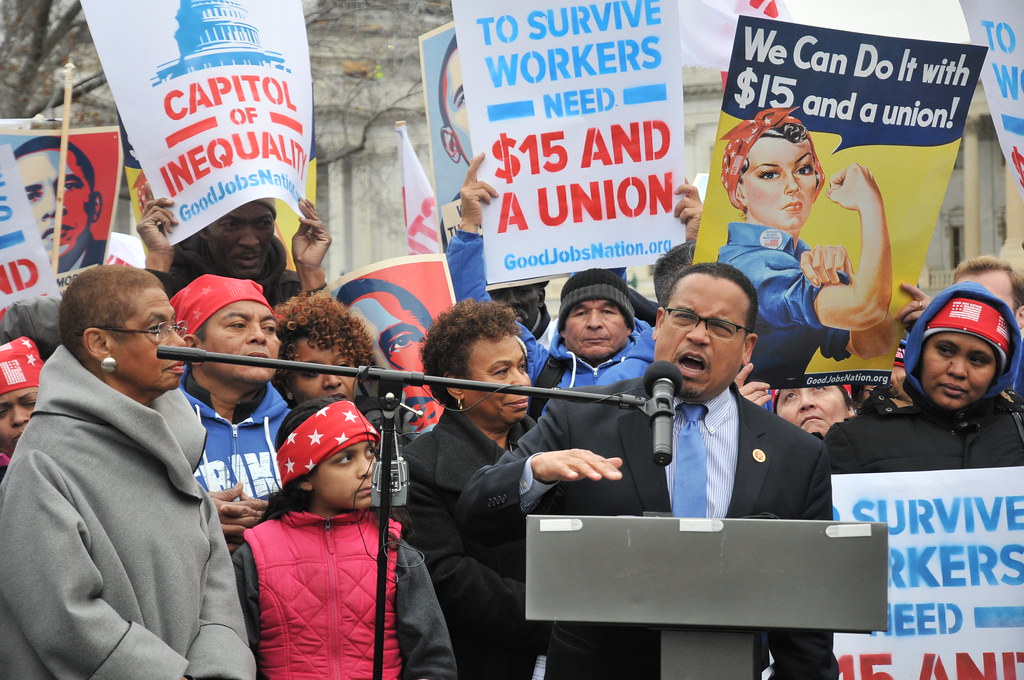
December 03, 2021
Active Revolving Door Between Government and Contracting Industry Could Threaten Reform
Officially speaking, the federal government employs just shy of 3.6 million people (2.2 in the civilian workforce and 1.4 in the military). In reality, however, the number of people whose paychecks originate with the federal government (through grants or service contracts) is much larger — around 12 million according to recent estimates. This workforce, and the contracts that sustain it, rarely get much attention in public discourse. Yet, the federal government’s power to set standards and direct funds through contracting is not an insignificant one. President Biden has begun to tap into those powers with directives to raise the minimum wage to $15/hour for federal contractors and institute a vaccine mandate for those same workers. These are strong first steps but they only scratch the surface of what is possible and what is needed to address the many problems that plague federal contracting. Fully harnessing that power, however, will likely require confronting a deep-seated problem: an active revolving door between the offices charged with granting and monitoring federal contracts and the companies that receive them.

December 02, 2021
Climate Finance Capacity Project: Commodity Futures Trading Commission
The Biden Administration was elected to office with an urgent mandate to change our current trajectory towards catastrophic climate change. Climate-focused financial regulation, or the regulation of markets to accurately account for climate risk and the social and material costs of climate-damaging activities, must be a part of this coordinated federal response in order to meaningfully address climate concerns at the governmental level. An agency that is particularly key to this goal is the Commodity Futures Trading Commission (CFTC). The CFTC is one of the smallest federal financial regulatory bodies and yet it is responsible for regulating one of the country’s largest markets, derivatives. While it was originally founded to regulate futures trading in commodities, the passage of the Dodd-Frank Wall Street Reform and Consumer Protection Act in 2010 expanded the CFTC’s mandate to include swaps markets and broadened the agency’s role in regulating other derivatives, in part due to their extreme volatility and outsized role in the 2008 financial crisis.

November 05, 2021 | The American Prospect
A Missing Link in the Fight Against the Climate Crisis
With his legislative climate agenda hanging in the balance, President Biden turned to executive action this week in his attempt to “assert American leadership” at COP26 in Glasgow. On Tuesday, the Environmental Protection Agency (EPA) announced sweeping new rules to curb methane emissions. Those standards, which the agency estimates would eliminate a greater volume of emissions between 2023 and 2035 than those emitted from all U.S. passenger cars and commercial planes in 2019, were rightly applauded. For now, however, these are just estimates. Ensuring that they turn into real-life emissions reductions that meet or exceed expectations will require that agencies have the capacity to promptly write strong new rules and, then, enforce them.
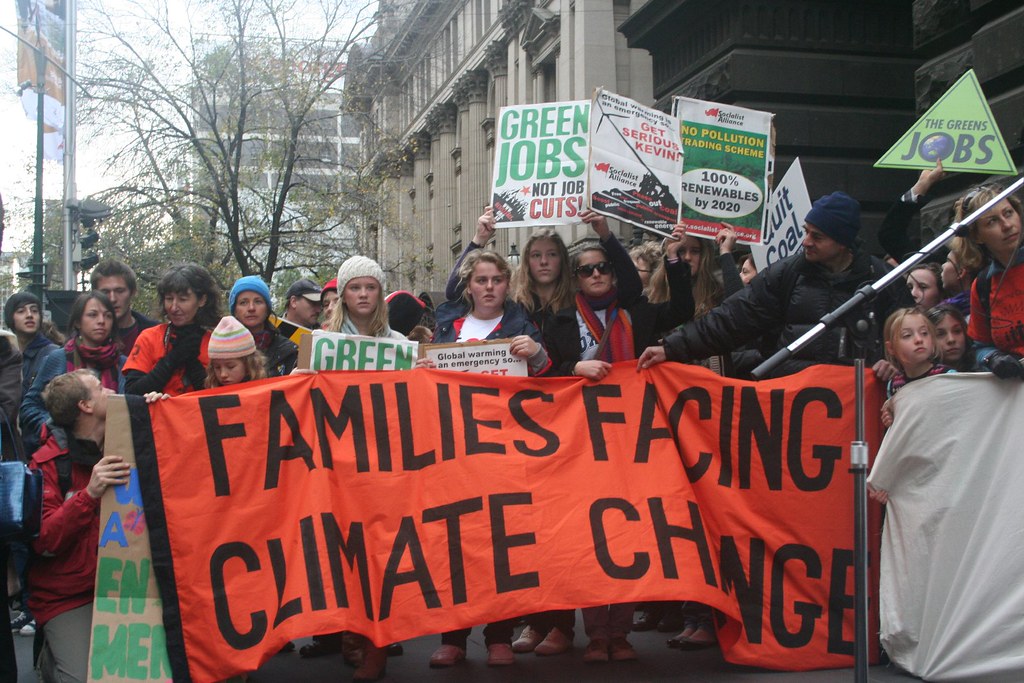
November 02, 2021
New Report Details How Reduced Staff Capacity Will Hamper Climate Action
This administration has consistently affirmed its commitment to rebuilding the federal workforce. But with only 98 months left until 2030, at which point we will need to have cut U.S. emissions in half to avoid climate catastrophe, it should be clear that there’s no time to waste turning words to action.

November 02, 2021
Climate Capacity Crisis: Attrition at Climate Agencies and Immediate Steps to Address It
It has been over nine months since President Donald Trump left office, but on climate policy the federal government continues to show the scars from his disastrous presidency. At a moment when we do not have even a second to waste to avoid catastrophic climate change, agencies are struggling to build back better after attacks on scientific integrity and agency budgets left them without sufficient staff capacity and expertise. While the Biden administration has consistently affirmed its support for the federal workforce through rhetoric and action, New York Times reporting from this summer makes clear that the rebuilding is still not happening fast enough.
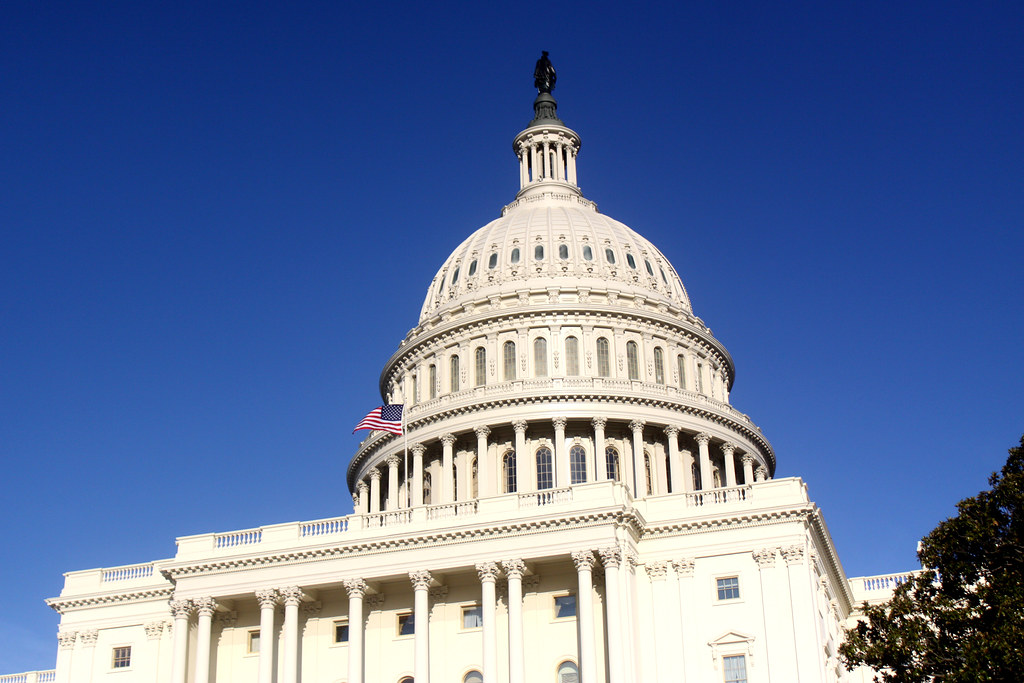
October 18, 2021 | The Hill
The Senate confirmation process is broken — Senate Democrats can fix it
Biden’s agenda are falling victim to arcane Senate rules, and not just the filibuster. Dysfunction is slowing the Senate confirmation process to a crawl too, producing a backlog hundreds of nominees deep. For as long as these delays keep permanent officials out of their intended roles, they will limit the scope and ambition of the Biden administration’s agenda. Senate Democrats must act to change them.

October 01, 2021
As Biden Promises Sweeping Housing Action, Nearly 100 Personnel Vacancies Plague HUD
Despite pledging to address the homelessness crisis, the president has not prioritized staffing HUD with housing policy personnel.

August 31, 2021
Biden Must Prioritize Rural Development To Help Rebuild The Heartland
With the right staff at the helm, USDA’s Rural Development Division could be the key to rebuilding rural America.

August 18, 2021
Who’s Afraid of Brett Kavanaugh’s Scorn?
The U.S. Court of Appeals is set to rule on the Biden Administration’s eviction moratorium sometime this week. No matter how it decides, however, it is already clear that those who argued against a new moratorium were wrong. A Trump judge has acknowledged that she must, begrudgingly, sustain it for now. By fighting, rather than preemptively surrendering, the administration has ensured that millions of Americans can stay in their homes for weeks longer. That is undoubtedly worth any embarrassment that government lawyers may feel from potentially eventually losing a case.
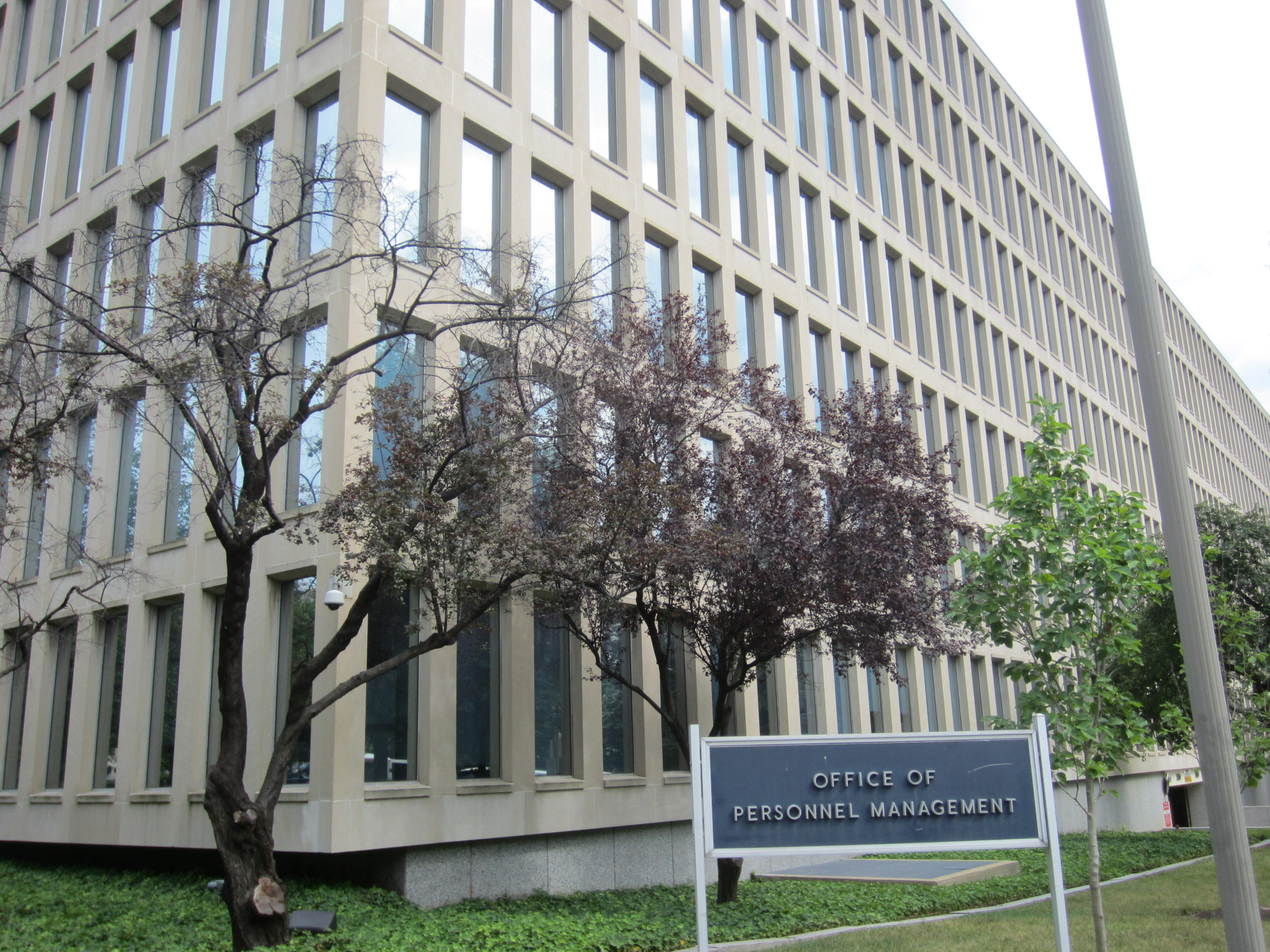
June 29, 2021 | Talking Points Memo
Biden’s New OPM Director May Be Among His Most Critical Appointees. Here’s Why.
It seems safe to assume that most people stopped paying attention to confirmation votes sometime around late spring (if not well before). And even those few who are still tuned in would be forgiven for missing the confirmation vote that directly preceded last week’s Senate showdown over the For the People Act. Despite its low-profile, however, that position — to lead the Office of Personnel Management (OPM) — may be among the most critical to the success of the Biden administration’s agenda.
June 01, 2021
How Revitalizing the IRS Can Help Save Democracy
The Internal Revenue Service (IRS) is tasked with ensuring Americans follow tax laws. The IRS not only audits everyday Americans and foreign nationals with US tax liabilities but also maintains the power to investigate wealthy individuals and corporations for tax avoidance or other forms of malfeasance. Despite its crucial role in enforcing federal taxes laws (or, more aptly, because of this role), Republican austerity has systematically dismantled the IRS over the past decade.
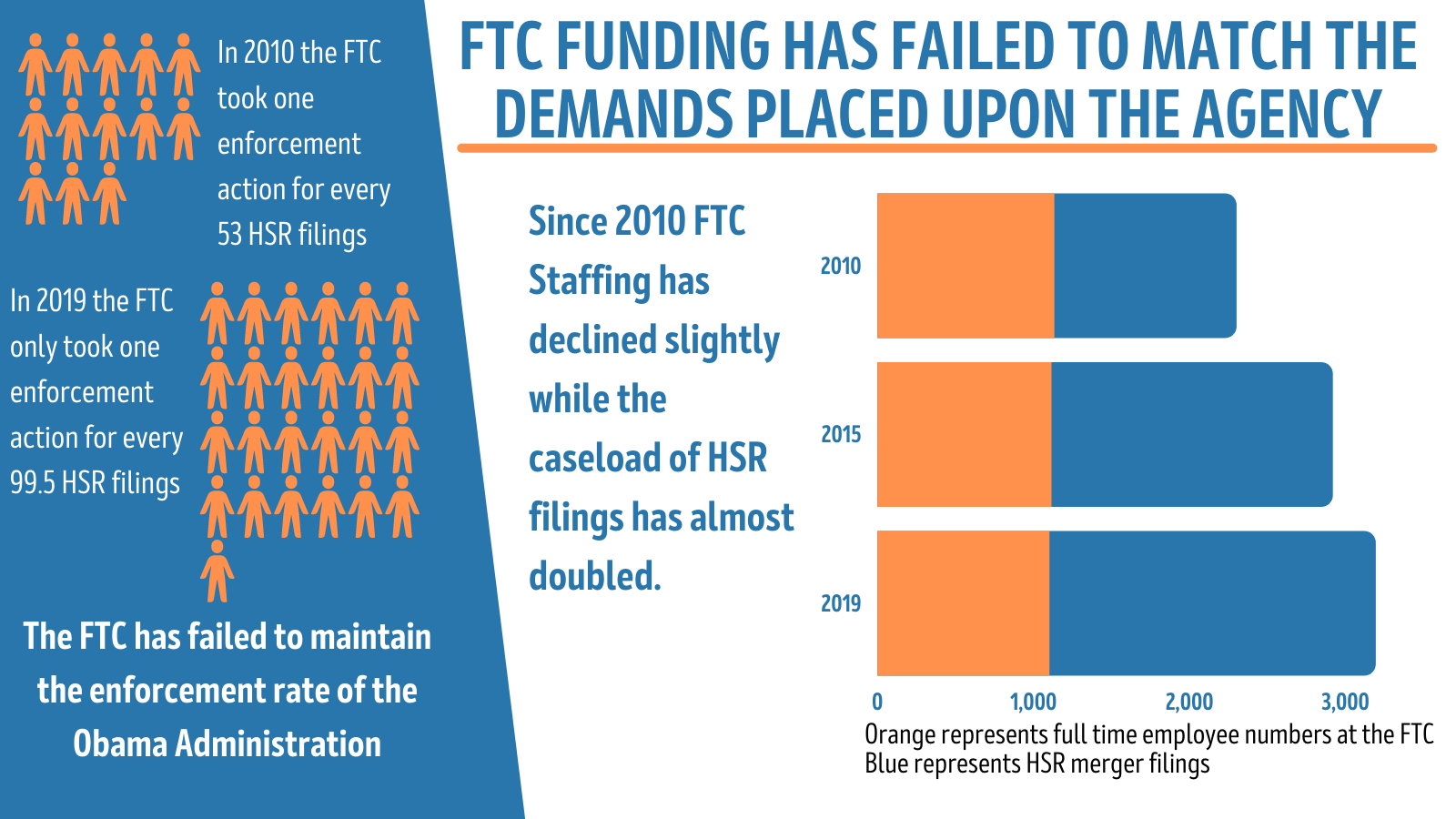
May 28, 2021
Hobbled FTC Lacks Budget To Combat Corporate Buying Spree
Progressives have been encouraged by President Biden’s choices of anti-monopoly leadership in Lina Khan, Tim Wu, and (potentially) Jonathan Kanter. But in the interregnum between personnel announcements and actual confirmations, corporations are getting as many transactions done now as possible. And while the Biden Administration seems on the precipice of reining in the power of Big Tech and other monopolists soon, the FTC, one of the two agencies charged with enforcing antitrust law, continues to be hobbled by chronic underfunding.
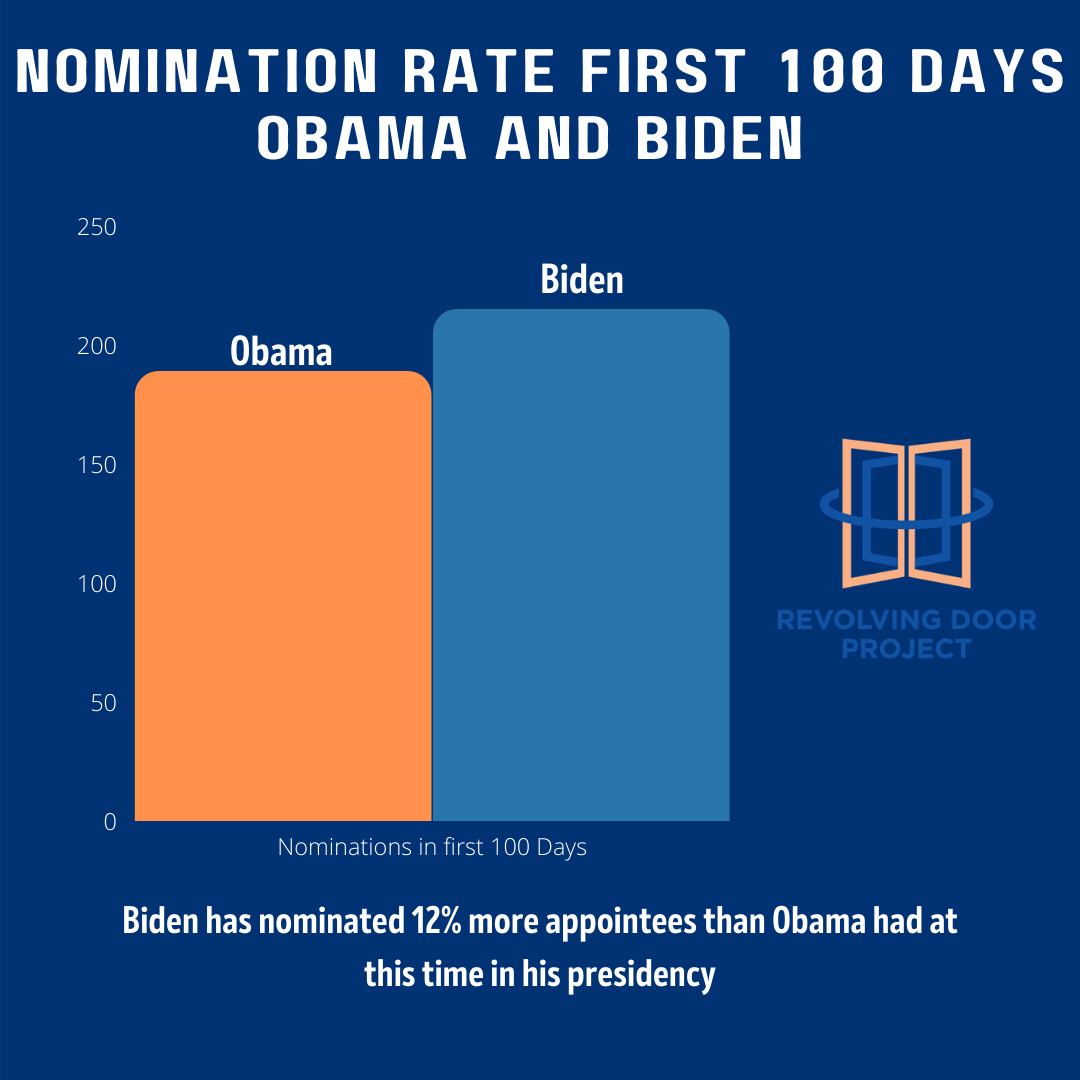
May 13, 2021
100 Days in Office and Biden is Outpacing Obama
Presidents are only as effective as the administrations they assemble. FDR’s “brain trust,” for example, drove his effective first term. As President Biden seeks to surpass his predecessors’ accomplishments and become the most effective president of the past 60 years, the staff with whom he surrounds himself are essential. For over a thousand members of his team, Senate confirmation stands between them and the critical task ahead, making it crucial that Biden quickly make nominations to get these senior leaders working towards his vision as soon as possible. As the traditional post-New Deal metric of how a young administration is performing, the 100th day in office is a chance to look back on the Biden administration’s progress thus far and compare it to the Obama administration.
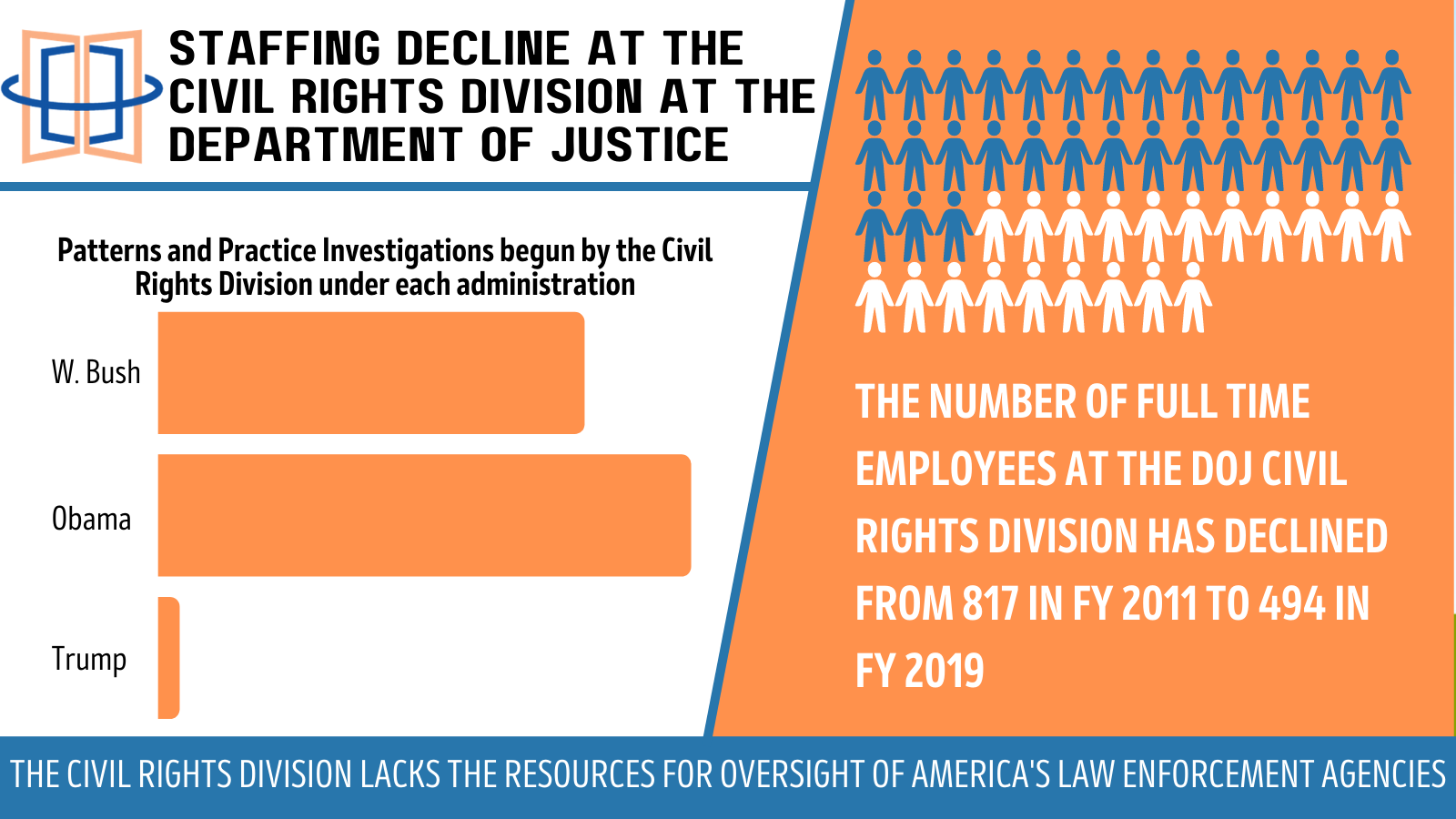
May 07, 2021
The DOJ's Civil Rights Division is Perilously Unstaffed, Slowing Biden Goals on Police Oversight and Reform
Throughout the 2020 campaign, in the wake of nationwide protests over the murder of George Floyd and other unarmed black people by police officers, Joe Biden committed himself to reforming law enforcement and combating police violence. But significant challenges loom in Biden’s quest for police reform. The federal government’s role in state and local law enforcement agencies is limited, and Biden’s ability to shepherd police reform legislation through Congress will be hampered by Republican opposition and disinclined moderate Democrats. Despite these obstacles, however, Biden is not powerless to make strides towards his campaign goals. Through his Department of Justice’s Civil Rights Division, he holds a significant power over local policing.
